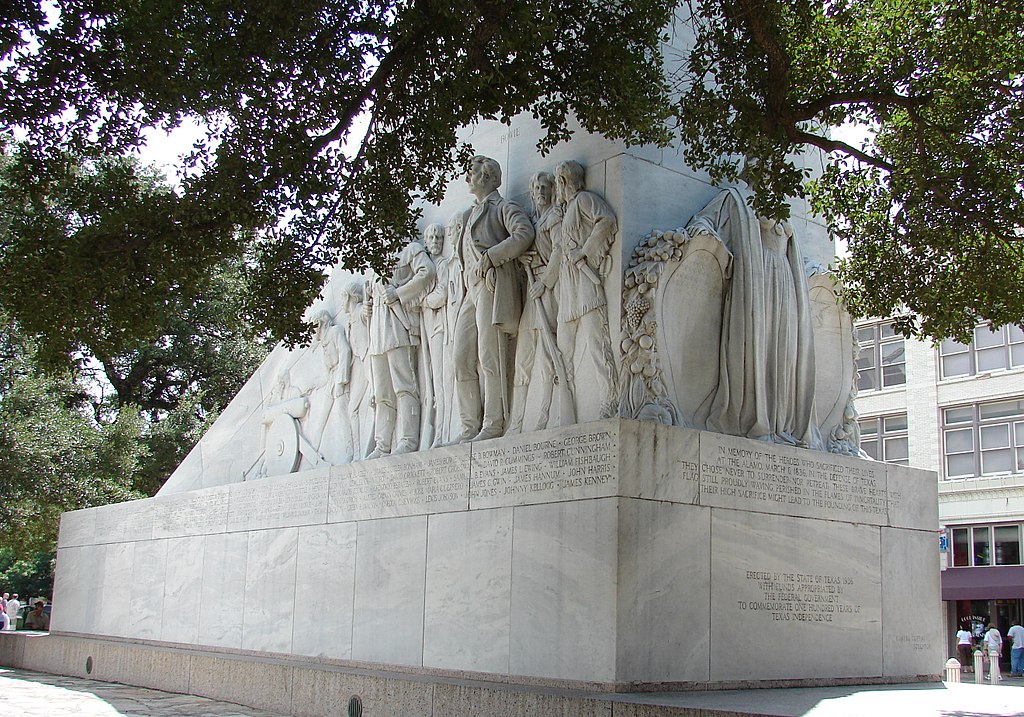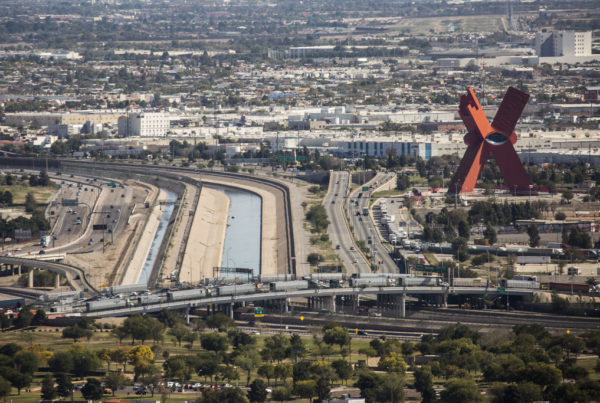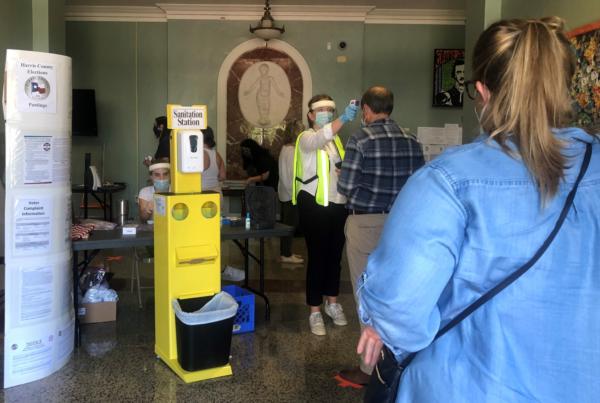The Alamo is in the midst of a massive redevelopment. There are big plans for the old San Antonio mission, including a new museum and visitor’s center, an expanded footprint and restoration of some original structures. The idea is to create a world-class experience that tells the whole history of the site, with a price tag of $450 million. But all those plans depend on a vote later this month by the Texas Historical Commission.
Douglass McDonald is the CEO of the Alamo Trust, Inc. McDonald’s leaving his post this month. He told Texas Standard that the conceptual designs for the project are aimed at “reclassifying” the Alamo site. He said visitors often don’t understand that the Alamo site included both a mission church and a fortress.
The Alamo restoration plan includes a plan to move the cenotaph monument that commemorates the Texans who defended the fortress in 1936. It was built in 1936 to commemorate the centennial of the battle of the Alamo. The Texas Historical Commission will vote on the plan to move it next week. McDonald said moving the monument will make it possible to center the mission portion of the site.
“This is actually the fifth attempt to improve the Alamo site,” McDonald said. “Many of those have included relocating the cenotaph. And we feel like if we’re trying to create an 1836 historic site, that a 60-foot monument in the center of a site where the primary building in that site is supposed to be the 35-foot church really creates a problem. “
McDonald said the current location of the cenotaph was controversial from the start. The artist who designed the monument supported the current location at the center of the Alamo. The Daughters of the Republic of Texas, who cared for the site, preferred that it be elsewhere.
“We are putting it back where the Daughters wanted to have it placed originally,” McDonald said.
Moving the cenotaph is critical to the redesign of the Alamo site, McDonald said. If the Texas Historical Commission does not approve its relocation, plans for redevelopment will have to be changed.
“If the THC doesn’t approve this … the city will go ahead and create a nice southern-end Alamo plaza,” McDonald said. “It will be an urban development, an urban space, but you won’t see the museum, you won’t see the reclaimed footprint.”
McDonald characterized the redevelopment plan he has spearheaded as a “fight for the Alamo,” and for visitors’ opportunity to experience the historical place.
“We’re fighting for a plan that actually allows the millions of people that come here to have a great experience, understand the history, and understand what it meant. But understand not just the history of 1836, but the history of the Spanish colonial era.”
MacDonald called the Alamo’s history “one of the most important historical narratives of the Western Hemisphere.” He said the current Alamo site diminishes the ability to tell that history.















